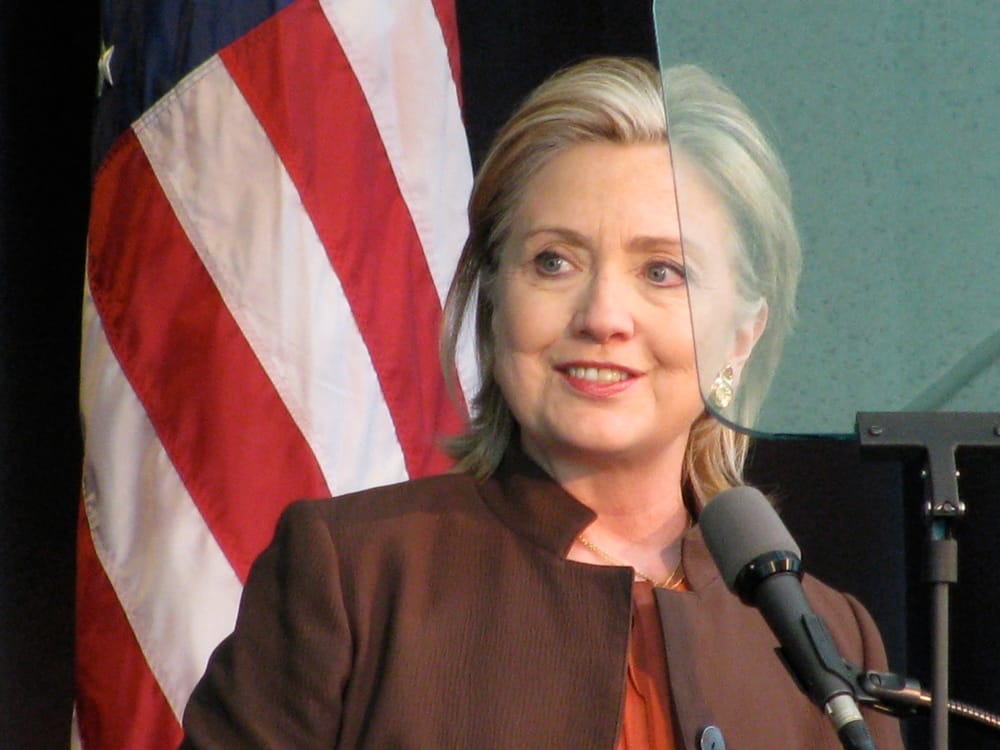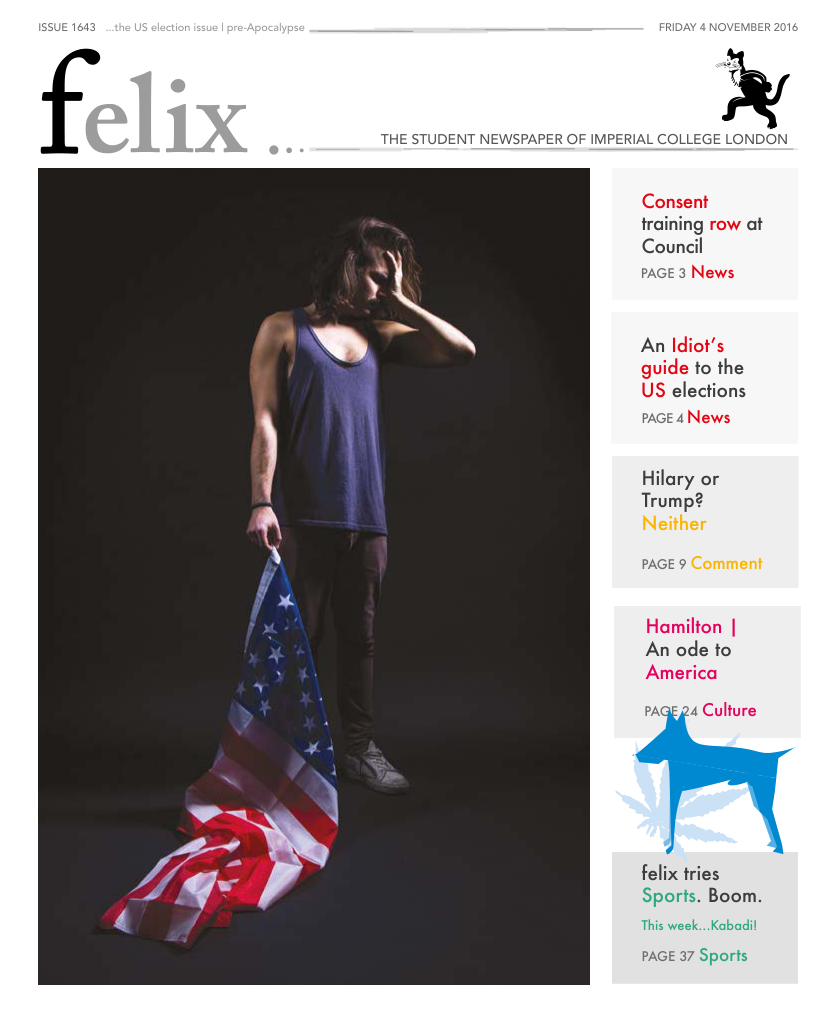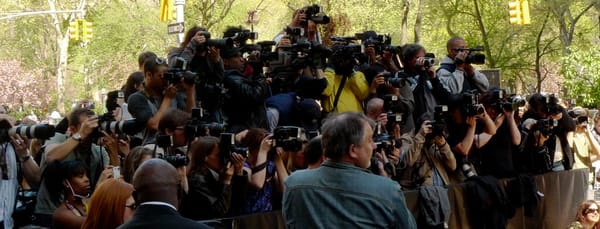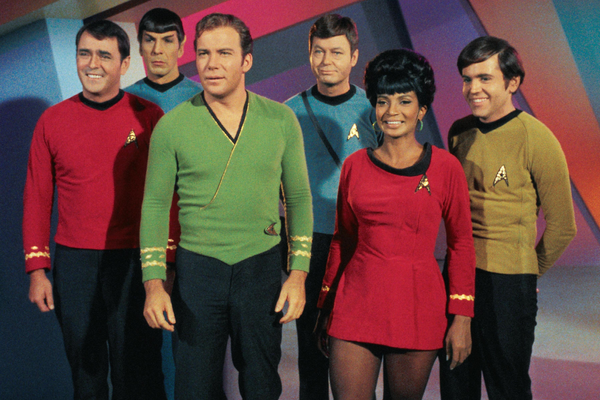In defence of ‘nasty women’
As the American election looms, the discourse has gotten more and more sordid. ‘What do we mean when we call someone a “nasty woman”?’ asks Fred Fyles, who turns to the silver screen for answers, looking at the archetypical ‘nasty women’ of cinema

On the evening of the 19th October, at the University of Nevada’s Las Vegas campus, the phrase ‘nasty woman’ entered the internet’s lexicon. These words were uttered by Donald Trump towards the end of the third and final election debate, in a contest that has been defined by mud-slinging, press-madness, and all-round feelings of dread. While answering a question about tax increases for the wealthy, Hillary Clinton made a jab about Trump’s likely tax evasion; half way through her answer, Trump leaned into the microphone, and pointedly said the words ‘such a nasty woman’, closely followed by ‘your husband disagrees with you’.
While many may pale at the idea of another Clinton presidency – both liberals and conservatives alike – this seemed to be a new low for Trump. In one fell swoop, Trump had defined Clinton, who was Secretary of State for four years, as her husband’s subject, and alienated many women voters. Seemingly instantaneously, products sprung up across the web: nasty woman t-shirts, badges, and Halloween costumes emerged overnight, to complete any liberal feminist’s outfit. But what do we mean when we say ‘nasty woman’? The term ‘nasty’, while technically genderless, to me always seems to be applied more often to women than men – why is this? As usual, I took to the silver screen to try and answer my questions for me.
For me, when someone uses the epithet ‘nasty woman’, it comes from a place of deep insecurity, from a fear of an inversion of the traditional patriarchal power structures in society. As such, when thinking about the role ‘nasty women’ play in cinema, the first film that springs to mind is the 1954 Nicholas Ray classic Johnny Guitar, a technicolour fever dream of a Western. Despite being named after the gunslinger, Johnny Guitar actually centres around Vienna (Joan Crawford), a saloonkeeper in high-waisted trousers who maintains a difficult relationship with the townspeople. As Michael Newton writes, Johnny Guitar ‘operates at an uncomfortable pitch of excess and emotional extremity’. Vienna, with her self-owned business, and a plot of land that stands to become a lot more valuable when the railroad is laid down, has economic power over the men in her life, and is able to maintain a fierce independence. She is nobody’s fool, and takes no prisoners, refusing to succumb to sentimentalism – as such she is one incarnation of the ‘nasty woman’.

But the power dynamic can manifest itself in different ways. In The Devil Wears Prada, Meryl Streep plays Miranda Priestly, the editor of Runway, and a thinly-veiled representation of Vogue editor Anna Wintour. Priestly is an arch-bitch, known for her chilly nature, and excessive demands on her personal secretary Andrea (Anne Hathaway); although the film attempts to let us see a softer side of Priestly, we are left with no doubts about what kind of person she is – one who is willing to throw others under the bus to get what she wants. Priestly doesn’t necessarily have economic power over others (although she is very wealthy), rather her power is more cultural – she is a tastemaker, one who can see through the cogs and labyrinth of the fashion industry to explain why that certain shade of cerulean has become so popular. While the film doesn’t explicitly touch on it, it’s not difficult to see the difference in perception between Priestly and Gordon Gecko, the broker at the centre of the 1987 film Wall Street: while Priestly is a ‘nasty woman’, Gecko is – like Leonardo DiCaprio’s character in The Wolf of Wall Street – more of an antihero, someone we root for despite ourselves. Despite having similar characters, the way we empathise with these characters is resoundly different, something that is difficult to separate from their gender.
Similarly, in Michael Clayton, the 2007 thriller, Tilda Swinton plays Karen Crowder, the general counsel of an agricultural products conglomerate, analogous to Monsanto. Crowder’s company is represented by a prestigious law firm, for whom Michael Clayton (George Clooney) acts as a ‘fixer’; things turn awry when Clayton happens across a document obtained by his dead colleague, which shows the company manufactured a weed killer they knew was carcinogenic. As she tries to cover up her company’s reputation, Crowder resorts to more desperate measures, including fraud and murder. Swinton earned an Oscar for her portrayal, which was full of nuance and sympathy – even though Crowder was the complete villain of the film, Swinton still managed to find space to build up a fully realised character, showing us that the ‘nasty woman’ label is one that (even if it is applicable) reduces a woman down to a single characteristic, and refuses to allow for any measure of depth.

The closest comparison to Clinton, and possibly the nearest thing cinema has to the archetypical political ‘nasty woman’, can be found in the character of Tracy Flick from Alexander Payne’s seminal 1999 film Election. Starring Reese Witherspoon as Tracy, Election centres around a Nebraskan high school’s student body election, and the trials and tribulations it brings. Tracy is the brightest student in the school, with an insufferable air of self-importance, and a desire to get herself on as many committees as possible; she’s got an overbearing single mother at home, a college education on the horizon, and now all she needs to do is to win the election. Unfortunately, she’s not the only one in the competition. Paul Meltzer (Chris Klein), a dim-witted by affable jock, is convinced to run by Jim McAllister (Matthew Broderick), a very popular history teacher who has a vendetta against Tracy after she had an affair with his best friend – another teacher, who was subsequently fired. Paul is highly popular amongst the student body, despite his lack of clear qualifications for the role of president; his speech to the students in hustings is meandering, and made up entirely of platitudes about how he worked through breaking his leg and scored a winning touchdown against Westside School. Paul is also enormously wealthy, with his cement-baron father furnishing his comfortable lifestyle. Sound familiar? The comparison between Election and this current election cycle couldn’t really be clearer. There’s even a Gary Johnson-esque character to be found in Tammy Meltzer (Jessica Campbell), who runs as an anti-authoritarian candidate, questioning the very process of the election. And, I’m not the first one to think so: The Atlantic, Huffington Post, and The Cut have all run articles about the uncanny comparison. Like Clinton, Flick is a woman with an extremely prolific track record, who is clearly very intelligent and astute, but has difficulties connecting emotionally with her electorate. As Tracy says herself in the film: ‘The pressures women face mean you have to work twice as hard, and you can’t let anything or anyone stand in your way.’
But Trump is no Paul Metzler, and this isn’t high school. What makes Tracy such a ridiculous character is that she doesn’t seem to understand how little the high school election matters: she is seen as cut-throat and bitchy against the others simply because they refuse to take things as seriously as she does. But while Tracy might seem like a nasty woman in the course of the film, really that behaviour is par for the course in the political arena, something we realise when Mr McAllister attempts to sabotage her campaign, in order to teach her a lesson. What makes Tracy a ‘nasty woman’ is really simply what makes a politician a politician: steadfastness, competitiveness, and a general disregard for others. To call Clinton a ‘nasty woman’ is to imply that Trump is virtuous, that he has the moral high-ground; Trump may claim that he has business acumen, all his own hair, and a huge dick, but claiming a higher sense of morals than Clinton might be a bridge too far.









